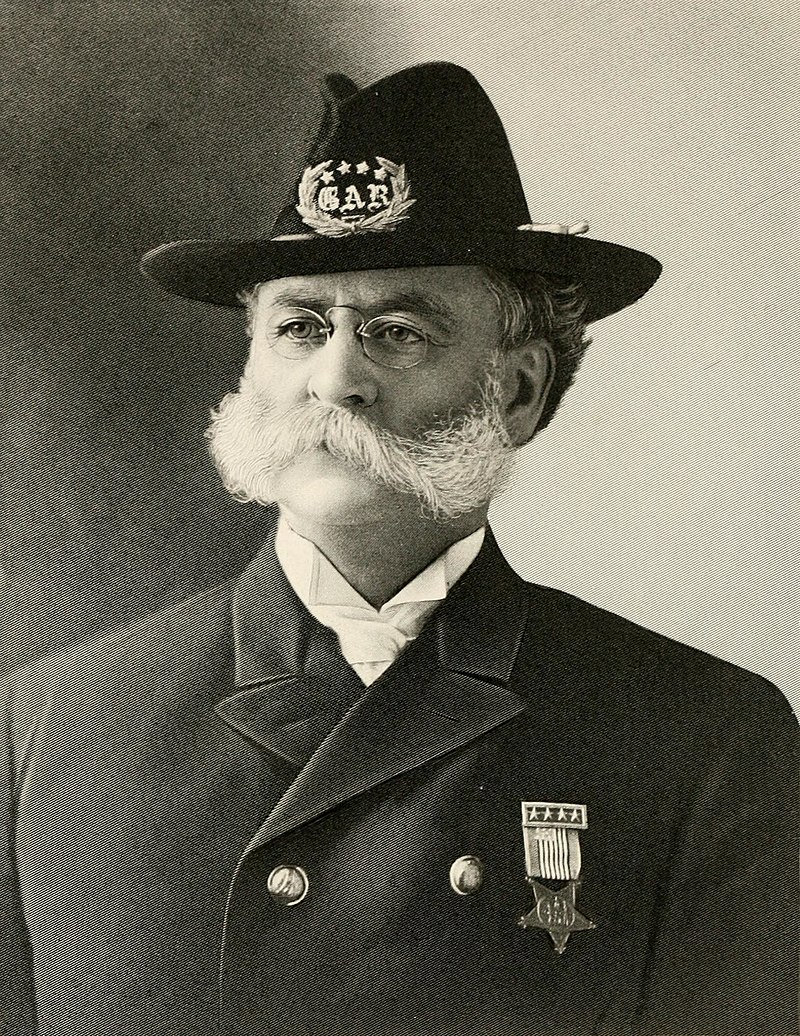Wilmon Whilldin Blackmar
Wilmon Whilldin Blackmar was born on July 25, 1841, in Bristol, Pennsylvania, to Joseph Blackmar and Eliza Philbrick. His father was a merchant and minister. The family moved to Boston, Massachusetts, sometime during his childhood, and he attended school there before attending Bridgewater Normal School. He enrolled at Phillips Exeter Academy, but he left after his second year in order to join the Union army. He enlisted on August 22, 1862, and mustered in as a corporal in Company K of the 15th Pennsylvania Cavalry on August 30. He took part in the Battle of Antietam, the Battle of Stones River, and the Battle of Chickamauga. On May 15, 1864, he was promoted to 1st lieutenant and transferred to Company H of the 1st West Virginia Cavalry. He served on General William H. Powell’s staff during the Shenandoah Valley Campaign in 1864 and received a commendation for “having saved, by a most hazardous ride, [his] brigade from capture by the forces of General Jubal A. Early.” He took part in the Appomattox Campaign, and General George Armstrong Custer brevetted him as a captain in recognition of his acts of valor. He later received the Medal of Honor for his actions during the campaign. He mustered out on July 8, 1865.
After the war, Blackmar resumed his education at Phillips Exeter before enrolling at Harvard Law School. By 1870, he was living in Boston and working as a lawyer. He married Helen R. Brewster there on November 17, 1880, and the couple divided their time between Boston and Hingham, Massachusetts. He served as Judge Advocate General for several governors, and he became Commander-in-Chief of the Grand Army of the Republic (GAR) in 1904. He died in Boise, Idaho, on July 16, 1905, while on a tour of GAR posts throughout the country.
DATABASE CONTENT
| (511) | Blackmar, Wilmon Whilldin | 1841-07-25 | 1905-07-16 |
- Conflict Side: Union
- Role: Soldier
- Rank in: Corporal
- Rank out: Captain
- Rank highest: Captain
- Gender: Male
- Race: White
Documents - Records: 1
- (1328) [writer] ~ Wilmon W. Blackmar to A. M. Sumner, 24 July 1863
People - Records: 1
- (512) Sumner, A. M. is the [friend of] (511) Blackmar, Wilmon Whilldin
Places - Records: 2
Regiments - Records: 2
Groups - Records: 1
- (6) [member/supporter] ~ Grand Army of the Republic
SOURCES
“Wilmon W. Blackmar,” Wikipedia article, available from Wikipedia.org; 1860, 1870, 1880, and 1900 United States Federal Censuses, available from Ancestry.com; 1890 Veterans Census, available from Ancestry.com; Massachusetts Marriage Records, 1840-1915, available from Ancestry.com; Civil War Soldier Records and Profiles, 1861-1865, available from Ancestry.com.





